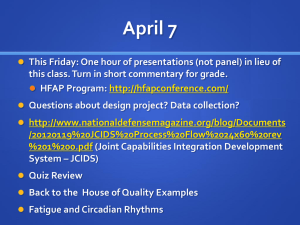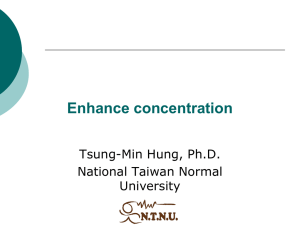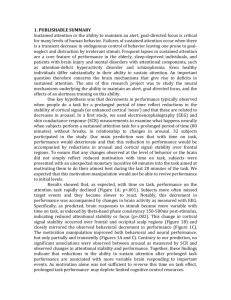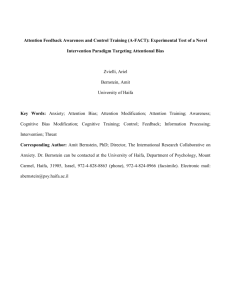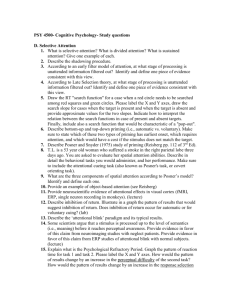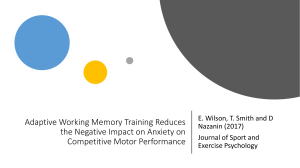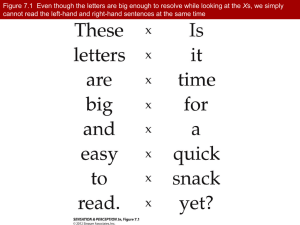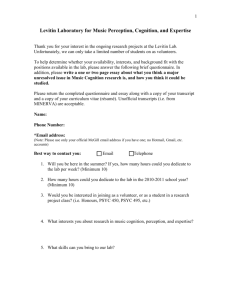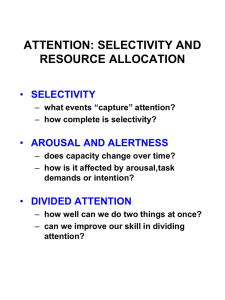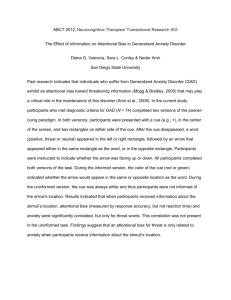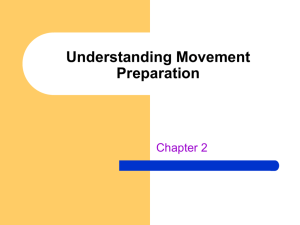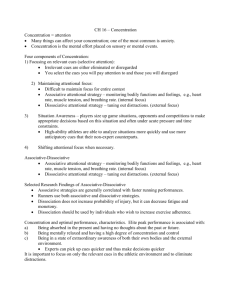HFS*500 ~ 8 Sept 2011 - freville-at
advertisement
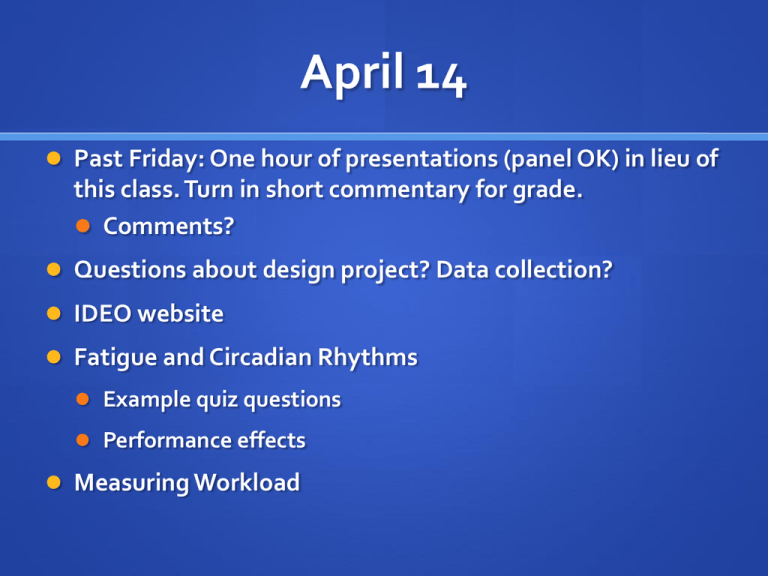
April 14 Past Friday: One hour of presentations (panel OK) in lieu of this class. Turn in short commentary for grade. Comments? Questions about design project? Data collection? IDEO website Fatigue and Circadian Rhythms Example quiz questions Performance effects Measuring Workload Two Reasons You May Feel Sleepy Melatonin Factoids The Hormone Melatonin Adenosine http://thebrain.mcgill.ca/flash/a/a_11/a_11_m/a_11_m_cyc/a_11_m_cyc.html http://thebrain.mcgill.ca/flash/i/i_03/i_03_m/i_03_m_par/i_03_m_par_cafeine.html Stress Effects on Cognition How does fatigue affect performance? The Yerkes-Dodson Law High & low stress/arousal can lead to impaired performance by reducing resource availability Novice or Expert or Stress Effects on Cognition If your attention is reduced, information processing in cognitive capacity will suffer. The Yerkes-Dodson Law: Tunneling & lapsing can occur here Fatigue Effects on Cognition attentional lapses some slowing of information processing Attention & working memory are compromised. Reduced Attentional Resources Cause… Lapses in attention Slowing of information processing Information not processed as ‘deeply’ Attentional narrowing/tunneling “Satisficing” Task shedding Reliance on automated performance Reliance on schemas/templates Stress Effects on Cognition High Arousal or Preoccupation Reduced attentional capacity Attentional tunneling Perceptual Working memory Reduced working memory capacity Less effective memory storage & recall Compromised: Attention, Working Memory, Retrieval from Long Term Memory Hancock & Warm’s Model of Stress Effects on Performance Stress is operationalized as level of arousal A - physiological function B - behavior/performance C - subjective comfort D - normative zone Hancock, P.A. & Szalma, J.L. (2006). Stress and Neuroergonomics. In: R. Parasuraman and M. Rizzo (Eds.),
